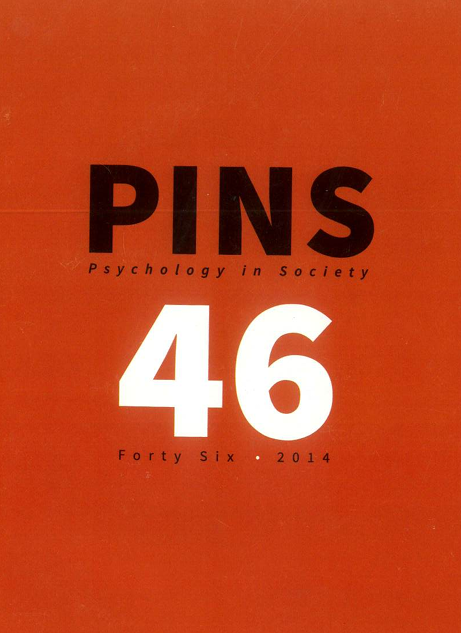Psychology in society? Addressing the academic/activist divide and the “magical boundary” of the academy
DOI:
https://doi.org/10.17159/2309-8708/2014/n46a7Abstract
“…we tell ourselves and our students that everything is simultaneously political and theoretical, yet we seem to have a hard time connecting the two outside the university” (Blomley, 1994: 28)
“The country we want to live in”: Psychology in society
A fairly recent South African text initiative titled The country we want to live in: Hate crimes and homophobia in the lives of black lesbian South Africans edited by gender and social activists Nonhlanhla Mkhize, Jane Bennett, Vasu Reddy and Relebohile Moletsane (2010) presents a stark and grim reminder that full and active citizenship in post-apartheid South Africa remains elusive for particular groups of people, living on the margins of society, whose lives remain unaffected by the much lauded constitutional gains and redress initiatives of a young democracy. Reflecting upon those haunting words: “the country we want to live in” incites me to ponder this country that we live in. I think about citizenship and belonging. I think about violence and its gendered forms. I think about feminist activism in South Africa and I think about my chosen profession, Psychology. What this title presents back to me is the promise of what a critical psychology project should be, must be. And so, I think reflectively not only about my rootedness in a profession that has historically strived to maintain a “magic boundary” between its intellectual, academic pursuits and broader society, but also about the different spaces and avenues that have critically and reflectively attempted to engage this dichotomy as a means of redress.
Downloads
Downloads
Published
How to Cite
Issue
Section
License
This journal is an open access journal, and the authors' and journal should be properly acknowledged, when works are cited.
Authors may use the publishers version for teaching purposes, in books, theses, dissertations, conferences and conference papers.
A copy of the authors’ publishers version may also be hosted on the following websites:
- Non-commercial personal homepage or blog.
- Institutional webpage.
- Authors Institutional Repository.
The following notice should accompany such a posting on the website: “This is an electronic version of an article published in PINS, Volume XXX, number XXX, pages XXX–XXX”, DOI. Authors should also supply a hyperlink to the original paper or indicate where the original paper (http://www.journals.ac.za/index.php/pins) may be found.
Authors publishers version, affiliated with the Stellenbosch University will be automatically deposited in the University’s’ Institutional Repository SUNScholar.
Articles as a whole, may not be re-published with another journal.
The copyright of the article(s) lies with the author(s).
The copyright of the journal lies with PINS-psychology in Society.
The following license applies:
Attribution CC BY-NC-ND 4.0 - https://creativecommons.org/licenses/by-nc-nd/4.0/

